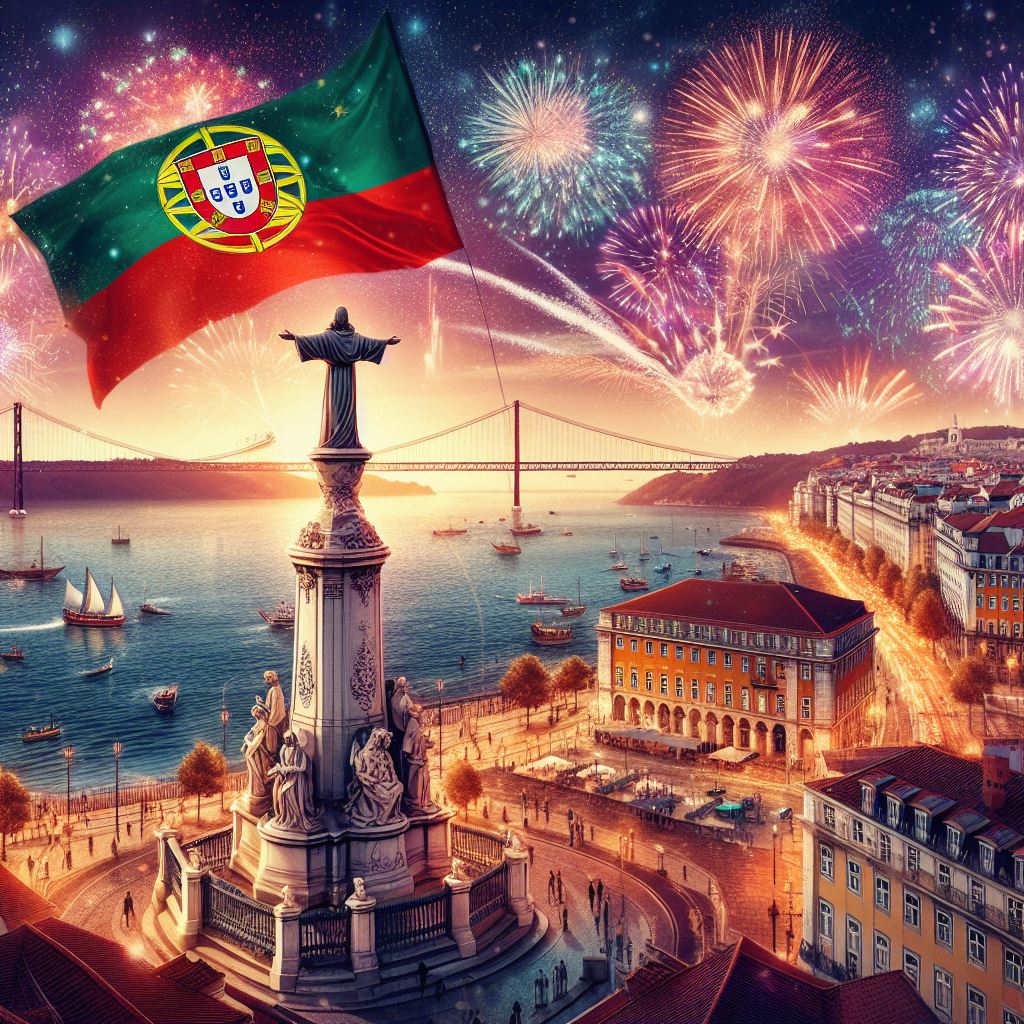As the year 2024 approaches, Portugal is preparing to host a record number of tourists for the New Year, reflecting the remarkable recovery of the country’s tourism industry from the devastating effects of the COVID-19 pandemic.
Portugal has been able to attract tourists from all over the world with its diverse and appealing attractions, such as its historic and cultural cities, its beautiful and sunny coastlines, and its rich and varied gastronomy. According to the National Statistics Institute (INE), the main markets for inbound tourism in Portugal are Spain, France, the UK, Germany, and the U.S., which together account for more than 80 percent of the total visitors.
One of the most sought-after destinations for the New Year’s Eve celebrations is Lisbon, the capital and largest city of Portugal. Lisbon offers a wide range of events and activities for the festive season, such as live concerts, spectacular fireworks, lively street parties, and delicious food and drinks. Some of the highlights of the New Year’s Eve program in Lisbon are:
- The São Silvestre Road Race, a traditional 10 km run that takes place on the 31st of December, starting and ending at Praça dos Restauradores.
- The New Year’s Eve Concert at Praça do Comércio (Terreiro do Paço), featuring popular Portuguese artists and band.
- The New Year’s Eve Fireworks at Praça do Comércio (Terreiro do Paço) and Belém, which light up the sky and the river with dazzling colors and shapes.
- The New Year’s Eve Street Party at Praça do Comércio (Terreiro do Paço), where thousands of people gather to dance, sing, and toast to the new year.
- The New Year’s Eve Gastronomic Experience at various restaurants, bars, and hotels in Lisbon, where visitors can enjoy the best of Portuguese cuisine and wine, as well as international dishes and drinks.
Lisbon is also home to many hotels that cater to different budgets and preferences, ranging from luxury to budget options. According to an exploratory data analysis of the hotel booking demand with Python, based on a dataset from Kaggle, some of the insights about the hotel market in Lisbon are:
- The city hotel has a higher occupancy rate than the resort hotel, indicating a higher demand for urban accommodation than for leisure accommodation.
- The average daily rate (ADR), which is the average revenue per occupied room, is higher in the summer months than in the winter months, reflecting the seasonal variation of the tourism demand.
- The most common booking type is transient, which means that the booking is not part of a group or contract, suggesting that most of the tourists are independent travellers rather than organized groups.
- The cancellation rate is higher for the city hotel than for the resort hotel, implying that the city hotel guests are more likely to change their plans than the resort hotel guests.
- The lead time, which is the number of days between the booking date and the arrival date, is positively correlated with the cancellation rate, meaning that the longer the lead time, the higher the probability of cancellation.
Therefore, travellers who want to secure a hotel room in Lisbon for the New Year’s Eve should book as early as possible and avoid cancelling their reservations, as the availability and prices of the hotels may vary depending on the demand and the season.
Portugal’s travel and tourism industry is on track to break records in 2024, and the New Year’s Eve celebrations are expected to be one of the highlights of the year. With its vibrant and diverse offerings, Portugal is a destination that appeals to travellers of all ages and interests, who can enjoy a memorable and festive experience in the country.
source: portugalist.com, traveltriangle.com, gotoportugal.eu, traveltriangle.com

